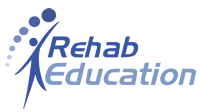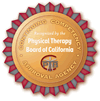Instrument Assisted Soft Tissue Mobilization (IASTM): Comprehensive Skills Course
Soft tissue pathology plays a primary role in limiting mobility, often resulting in profound loss of function for those with injuries. This course covers the theory and intervention strategies for identifying and treating soft tissue restrictions utilizing Instrument Assisted Soft Tissue Mobilization (IASTM) techniques. This comprehensive case-study-based course uses a lab-focused teaching format, covering the upper quarter for the first half, and the lower quarter for the second half; allowing for upper extremity specialists to attend the portion of the course relevant to their area of specialty. In addition to instruction in basic treatment techniques, this course includes the utilization of motion with IASTM and the use of IASTM over nerves and nerve beds.
Lab attire consisting of shorts, as well as swimsuit or halter-tops for women is required to allow for proper practice of techniques. Tools will be provided for use during the course.
Course Prerequisite: EB abstracts will be emailed to participants prior to the course.
PROGRAM AND INSTRUCTOR SUBJECT TO CHANGE.
During hands-on lab sessions, the course instructor(s) will evaluate each participants techniques/skills learned to determine proficiency for course completion. If 3/5 criteria are not attained the instructor will work with the attendee until all the criteria is met. Post test at end of course will be used as a tool to review answers and rationale, ensuring attendees have gained all content knowledge.
This course content is not intended for use by any participants outside the scope of their license or regulation.
You will be required to:
• review several abstracts prior to the start of the live course. Abstracts will be emailed to you upon completion of registration.
• wear shorts and a halter top or tank top for lab sessions.
• wear comfortable clothing over lab attire, so you are not cold during lecture sessions.
Upon completion of online registration, you will be emailed a course receipt. This is NOT a course confirmation. Your course confirmation will be sent separately. It is recommended that you wait for written course confirmation prior to booking non-refundable travel or lodging. If you have not received course confirmation 10 days prior to your live CE course, please contact Rehab Education, LLC to check on status of your registration.
At the completion of this program the participant will be able to:
- Identify 3 precautions for IASTM use with overuse injuries in the patient with orthopedic problems such as tennis elbow or forearm strain.
- Identify 3 contraindications for IASTM use with scar management in the patient with orthopedic problems such as De Quervains tenosynovitis.
- Given a patient scenario in which the patient demonstrates movement dysfunction from fascia restrictions incorporate 2 appropriate IASTM techniques into the plan of care.
- Given a patient scenario for a patient with shoulder pain, justify the following choices: concave vs convex, broad vs small contact and single vs double
- Following the course and given 3 case scenarios the participant will match all appropriate strokes from the following list of basic IASTM strokes (sweeping, fanning, brushing, strumming, framing, rolling and fileting) to each case
- Given the result of a case scenario justify the use of 2 advanced IASTM strokes (tack and mobilize, fascia torsion).
- Justify based on evidence how each IASTM intervention (proprioception, soft tissue movement based restrictions) can be integrated into the overall treatment program for patients with Upper Extremity Nerve Entrapment.
- Describe 3 testing techniques used to identify neural tissue involvement in patients with Lower Extremity Peripheral Nerve Entrapment.
Day 1 Upper Quarter Focus
|
|
| 7:30 - 8:00am | Registration - sign in |
| 8:00 - 8:45 | Introduction - Theoretical basis of IASTM, review of current literature |
| 8:45 - 10:00 | Basic handling, tool selection, and basic treatment strokes lab |
| 10:00 - 10:15 | Break |
| Case Study Teaching Labs:The remainder of Day 1 will consist of a series of Case Studies selected to teach basic to intermediate skills needed to become proficient in the application of IASTM treatment. Participants will be presented with learning objectives and problems that they will work through in small groups. Each case study will be reviewed and treatment skills demonstrated by the instructor to be practiced during hands-on Labs. | |
| 10:15 - 12:00 | Basic case studies teaching lab 1:
|
| 12:00 - 1:00 | Break for Lunch |
| 1:00 - 2:30 | Basic case studies teaching lab 2:
|
| 2:30 - 3:15 | Basic case studies teaching lab 3 – neck and head
|
| 3:15 - 3:30 | Break |
| Integration and Advanced Techniques Lab: This session builds on the basic skills learned in the earlier labs by adding advanced treatment strokes – tack/mobilize, treatment with motion added, and complex stroke techniques to target specific tissues. Participants will re-visit earlier case studies of their choice and integrate the new strokes for problem solving. |
|
| 3:30 - 4:45 | Advanced treatment strokes lab – Tissue planes, treatment with motion
|
| 4:45 - 5:00 | Documentation: Suggestions to maximize documentation skills for reimbursement and recording treatment |
Day 2 Complete UE portion and move to lumbar/lower quarter focus
|
|
| 8:00 - 9:30 | Treating nerves and nerve beds lab – Upper Quarter Case Studies
|
| Integration, Synthesis, and Application Lab: The following lab will consist of assigned complex case studies that incorporate all the components of IASTM-based treatment covered over the upper quarter portion of this course. The class will be divided up into small groups to work through one case study each on an independent basis. Each group will then present to the class their comprehensive treatment program to address the case study patient’s clinical deficits. Relevant evidence will be reviewed and discussed for each case study. |
|
| 9:30 - 10:00 | Putting it all together – Complex patient independent problem-solving lab |
| 10:00 - 10:15 | Break |
| Trunk and Lower Quarter Lab: This lab will consist of case studies to teach IASTM intervention strategies for the trunk and lower quarter. |
|
| 10:15 - 11:00 | Thoracic and lumbar Case Studies Teaching Lab
|
| 11:00 - 12:00 | Proximal lower quarter case studies
|
| 12:00 - 1:00 | Lunch |
| 1:00 - 2:00 | Distal lower quarter case studies
|
| Peripheral Nerve Entrapment Case Studies Teaching Lab – Lower Extremities: This lab will mirror the format used in the upper extremity nerve and nerve-bed lab by using case studies to teach IASTM management of these challenging patients. Included will be novel testing techniques to identify neural tissue involvement and test-treat-retest principles. |
|
| 2:00 - 2:45 | Treating nerves and nerve beds lab – Lower Quarter
|
| 2:45 - 3:15 | Putting it all together, course wrap up – Complex patient problem-solving lab – Group Review |
13.5 contact hours (13.5 clock hours)
BOC Skill Level: Essential
This course is accepted by many professional credentialing organizations and state professional regulatory boards. Rules and regulations change frequently without notification, and apply differently to live and online courses. Please check with your state board to confirm accuracy of this list and acceptance of contact hours. Certificate of Attendance will be issued to all participants upon completion of the course and may be used for CEU verification of credits. CE credits vary by state. Please check with your state board/certifying agency to confirm conversion of contact hours to CE. See links below.
Rehab Education, LLC is recognized as:
- AOTA approved provider of OT and OTA continuing education (#6177)
- approved provider of PT and PTA continuing education by the NY State Education Department Board of Physical Therapy.
- approved provider of PT and PTA continuing education by IDFPR/ Illinois Board of Physical Therapy (#216000227).
 American Occupational Therapy Association (AOTA): Rehab Education, LLC is an AOTA Approved Provider of professional development. Provider # 6177. This live CE course is offered at 1.35 CEUs (13.5 clock hours) | Intermediate level | OT Service Delivery/Foundational Knowledge. The assignment of AOTA CEUs does not imply endorsement of specific course content, products, or clinical procedures by AOTA or indicate AOTA approval of a certification or other professional recognition. (Approval pending)
American Occupational Therapy Association (AOTA): Rehab Education, LLC is an AOTA Approved Provider of professional development. Provider # 6177. This live CE course is offered at 1.35 CEUs (13.5 clock hours) | Intermediate level | OT Service Delivery/Foundational Knowledge. The assignment of AOTA CEUs does not imply endorsement of specific course content, products, or clinical procedures by AOTA or indicate AOTA approval of a certification or other professional recognition. (Approval pending)
Arkansas Physical Therapy Association: This course has been approved by the Arkansas APTA for 13.5 contact hours. Approval #APTA-AR 2014
 Board of Certification, Inc (BOC) Approved Provider #P8271: Rehab Education, LLC (BOC AP#: P8271) is approved by the Board of Certification, Inc. to provide continuing education to Certified Athletic Trainers. This program is eligible for a maximum of 13.5 Category A hours/CEUs. ATs should claim only those hours actually spent in the educational program. (Course must be taken before 3-31-2026)
Board of Certification, Inc (BOC) Approved Provider #P8271: Rehab Education, LLC (BOC AP#: P8271) is approved by the Board of Certification, Inc. to provide continuing education to Certified Athletic Trainers. This program is eligible for a maximum of 13.5 Category A hours/CEUs. ATs should claim only those hours actually spent in the educational program. (Course must be taken before 3-31-2026)
 Physical Therapy Board of California: The Physical Therapy Board of California recognizes Rehab Education, LLC as an approval agency to approve providers offering continuing competency courses for CA licensed PTs and PTAs. This course is approved for 13.5 contact hours.
Physical Therapy Board of California: The Physical Therapy Board of California recognizes Rehab Education, LLC as an approval agency to approve providers offering continuing competency courses for CA licensed PTs and PTAs. This course is approved for 13.5 contact hours.
California OT Board: This course and instructor have been approved by the CA Board of OT for 8.75 contact hours of post-professional education in the advanced practice area of hand therapy. Approval #22-H19.
Illinois State Board of Physical Therapy: Approved CE Sponsor by Illinois State Board of Physical Therapy, Division of Professional Regulations, Approval #216.000227. (Course must be taken prior to 09-30-2026)
New Jersey State Board of Physical Therapy Examiners: This course has been approved by the New Jersey State Board of Physical Therapy Examiners for 13.5 continuing education credits, Approval #2201-36. (Course must be taken prior to 01-31-2026)
NY State Physical Therapy Board: Rehab Education, LLC is recognized as an approved provider of PT and PTA continuing education by the NY State Education Department Board of Physical Therapy. (Course must be taken prior to 05-10-2028)
States that Accept AOTA Approval / PT State Boards’ Approval Reciprocity
The assignment of AOTA CEUs does not imply endorsement of specific course content, products, or clinical procedures by AOTA. At the time of listing, these states currently recognize AOTA Approved Providers for OT continuing education either in regulatory language or by formal written communication to AOTA. For an up-to-date list, see the AOTA website.
Alabama
Alaska
Arkansas
Arizona*
California
Delaware
District of Columbia
Florida **(self-report to CE Broker)Georgia*
Illinois
Indiana
Kentucky
Louisiana*
Maryland
Massachusetts
MichiganMinnesota
Mississippi*
Missouri
Montana
Nevada
New Hampshire
New Mexico
New YorkNorth Carolina
North Dakota
Ohio
Oregon
Oklahoma
Pennsylvania
Rhode IslandSouth Carolina*
South Dakota
Tennessee*
Texas
Vermont
Virginia
Wisconsin (self study courses only)
*see CE Broker
**FL licensees may need to self-submit courses in CE BrokerDisclaimer: Rehab Education LLC provides this list for your convenience. At the time of listing, the following state boards accept courses by virtue of approval by other organizations. It is the responsibility of the participant registering for a course to check with their state board to confirm rules and regulations regarding acceptance of contact hours for live and online courses.
The following PT Boards accept courses approved by other PT State boards*:
Alaska
Delaware
District of Columbia
Hawaii
IllinoisIndiana
Kansas
Kentucky
Michigan
MontanaNorth Carolina
North Dakota
Oregon
Pennsylvania
TennesseeUtah
Vermont
Virginia
Wyoming
The following PT Boards accept courses approved by other APTA state associations*:
Alaska
Arizona
Delaware
District of Columbia
Florida **(self-report to CE Broker)
GeorgiaKansas
Kentucky
Mississippi
Missouri
North Carolina
North DakotaRhode Island
South Dakota
Utah
Vermont
Virginia
Wyoming
The following PT Boards do not require pre-approval for continuing education activities as long as they are “directly related to the licensee’s practice of physical therapy” and/or meet the guidelines established by the board.
Alabama
Colorado
Connecticut
Iowa
New Hampshire
Washington
Wisconsin
HELPFUL LINKS:
*NBCOT…National Board for Certification of Occupational Therapy (view PDU requirements)+HTCC… Hand Therapy Certification Commission (view recertification requirements)
Hand Therapy Certification Commission (HTCC): This course is accepted by HTCC towards re-certification.

 American Occupational Therapy Association (AOTA): Rehab Education, LLC is an AOTA Approved Provider of professional development. Provider # 6177. This live CE course is offered at 1.35 CEUs (13.5 clock hours) | Intermediate level | OT Service Delivery/Foundational Knowledge. The assignment of AOTA CEUs does not imply endorsement of specific course content, products, or clinical procedures by AOTA or indicate AOTA approval of a certification or other professional recognition. (Approval pending)
American Occupational Therapy Association (AOTA): Rehab Education, LLC is an AOTA Approved Provider of professional development. Provider # 6177. This live CE course is offered at 1.35 CEUs (13.5 clock hours) | Intermediate level | OT Service Delivery/Foundational Knowledge. The assignment of AOTA CEUs does not imply endorsement of specific course content, products, or clinical procedures by AOTA or indicate AOTA approval of a certification or other professional recognition. (Approval pending) Board of Certification, Inc (BOC) Approved Provider #P8271: Rehab Education, LLC (BOC AP#: P8271) is approved by the Board of Certification, Inc. to provide continuing education to Certified Athletic Trainers. This program is eligible for a maximum of 13.5 Category A hours/CEUs. ATs should claim only those hours actually spent in the educational program. (Course must be taken before 3-31-2026)
Board of Certification, Inc (BOC) Approved Provider #P8271: Rehab Education, LLC (BOC AP#: P8271) is approved by the Board of Certification, Inc. to provide continuing education to Certified Athletic Trainers. This program is eligible for a maximum of 13.5 Category A hours/CEUs. ATs should claim only those hours actually spent in the educational program. (Course must be taken before 3-31-2026) Physical Therapy Board of California: The Physical Therapy Board of California recognizes Rehab Education, LLC as an approval agency to approve providers offering continuing competency courses for CA licensed PTs and PTAs. This course is approved for 13.5 contact hours.
Physical Therapy Board of California: The Physical Therapy Board of California recognizes Rehab Education, LLC as an approval agency to approve providers offering continuing competency courses for CA licensed PTs and PTAs. This course is approved for 13.5 contact hours.